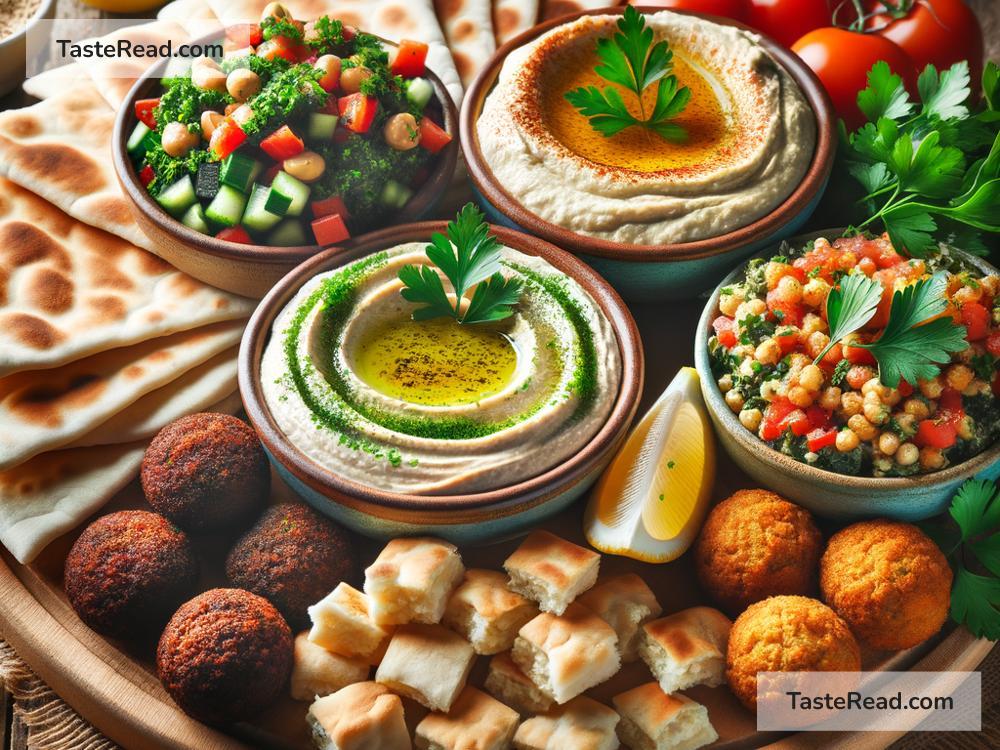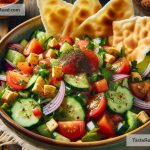Why Lebanese Cuisine is the Ultimate Fusion of Flavors: Hummus, Falafel, and More
Lebanese cuisine is like a grand feast for the senses, offering a rich tapestry of flavors, textures, and aromas that captivate the heart and the palate. This unique culinary tradition stands out not just in the Middle East but worldwide, thanks to its incredible diversity and the sheer complexity of its dishes. From the creamy delight of hummus to the crispy, savory goodness of falafel, Lebanese food is a testament to the country’s rich history, cultural diversity, and the profound love of its people for good food. Let’s dive into what makes Lebanese cuisine the ultimate fusion of flavors.
To start with, Lebanese food is renowned for its variety. Thanks in part to Lebanon’s geographic location and its historical connections with both Eastern and Western cultures, its cuisine embodies a remarkable blend of flavors from various parts of the world. Ingredients like olive oil, garlic, and lemon, staples in Mediterranean cooking, meet spices such as sumac, za’atar, and cardamom, which are more commonly found in Middle Eastern and Asian cuisines. This marriage of ingredients and techniques has given rise to a distinctive culinary style that’s both familiar and exotic.
At the heart of Lebanese food is the concept of ‘mezze’. Mezze refers to a collection of small dishes that offer a spectrum of flavors and textures. Eating mezze is a social activity, designed to bring people together as they share from the same plates. It’s not unusual to find a table crowded with dishes like hummus, tabbouleh (a refreshing parsley salad), baba ghanoush (a smoky eggplant dip), and of course, the iconic falafel. Each dish, though humble in its components, is a showcase of the culinary alchemy that defines Lebanese cuisine.
Hummus, for instance, is a global favorite, and for good reason. At its core, it’s a simple blend of chickpeas, tahini (sesame paste), lemon, and garlic. However, it’s the balance of these ingredients, along with the quality and freshness, that elevates it into something divine. The creamy texture and the harmonious blend of flavors make hummus not just a dip but a celebration of simplicity and taste.
Falafel, on the other hand, might just be the perfect snack. These deep-fried balls of ground chickpeas or fava beans, herbed and spiced to perfection, are crispy on the outside and wonderfully tender on the inside. Served in a pita with tahini sauce, vegetables, and sometimes pickles, falafel is a memorable foray into the heart of Lebanese street food culture. It demonstrates how the cuisine can take humble ingredients and elevate them into something truly special.
But Lebanese cuisine isn’t just about vegetarian delights. It’s also home to a variety of meat dishes that are just as flavorful and enticing. Take the ‘kebab’, for instance. These skewered and grilled meats, seasoned with a plethora of spices and herbs, are a testament to the meat-cooking techniques perfected over centuries. Or consider ‘kibbeh’, a mixture of ground meat, bulghur (cracked wheat), and spices, which can be formed into balls or patties and then cooked in different ways. Each bite of these dishes carries the warmth of Lebanese hospitality and the richness of its culinary heritage.
Moreover, Lebanon’s location along the Mediterranean Sea means that seafood also plays a significant role in its cuisine. Grilled fish, seasoned with a simple yet magical combination of olive oil, lemon, and herbs, reflects the Lebanese knack for showcasing natural flavors without overwhelming them.
The beauty of Lebanese cuisine lies not just in its ingredients or recipes but in the philosophy that food is to be shared and enjoyed together. It embodies a lifestyle where meals are a time for gathering, for joyfully sharing dishes that are prepared with love and care. This communal aspect adds an intangible flavor to the food that’s difficult to replicate.
In conclusion, Lebanese cuisine is an exploration of flavors, a journey through centuries of culinary tradition, and a vibrant celebration of life’s simple pleasures. It’s a cuisine that believes in the magic of turning simple ingredients into a feast, of blending tradition with innovation, and of sharing meals with warmth and generosity. Whether it’s the creamy embrace of hummus, the crunch of falafel, or the succulent joy of grilled meats and seafood, Lebanese food invites you to a table where every dish is a story, every flavor a memory. It’s no wonder then that Lebanese cuisine is considered the ultimate fusion of flavors. Join in the celebration, and let your taste buds embark on a journey they will never forget.


